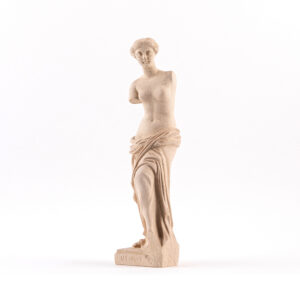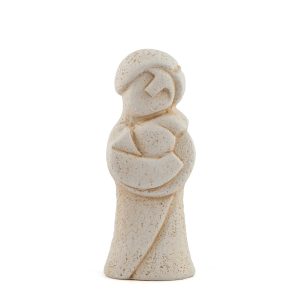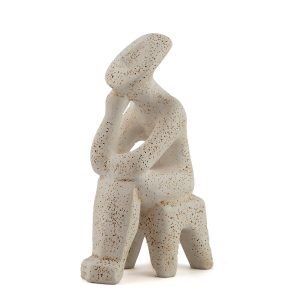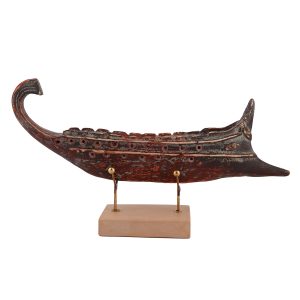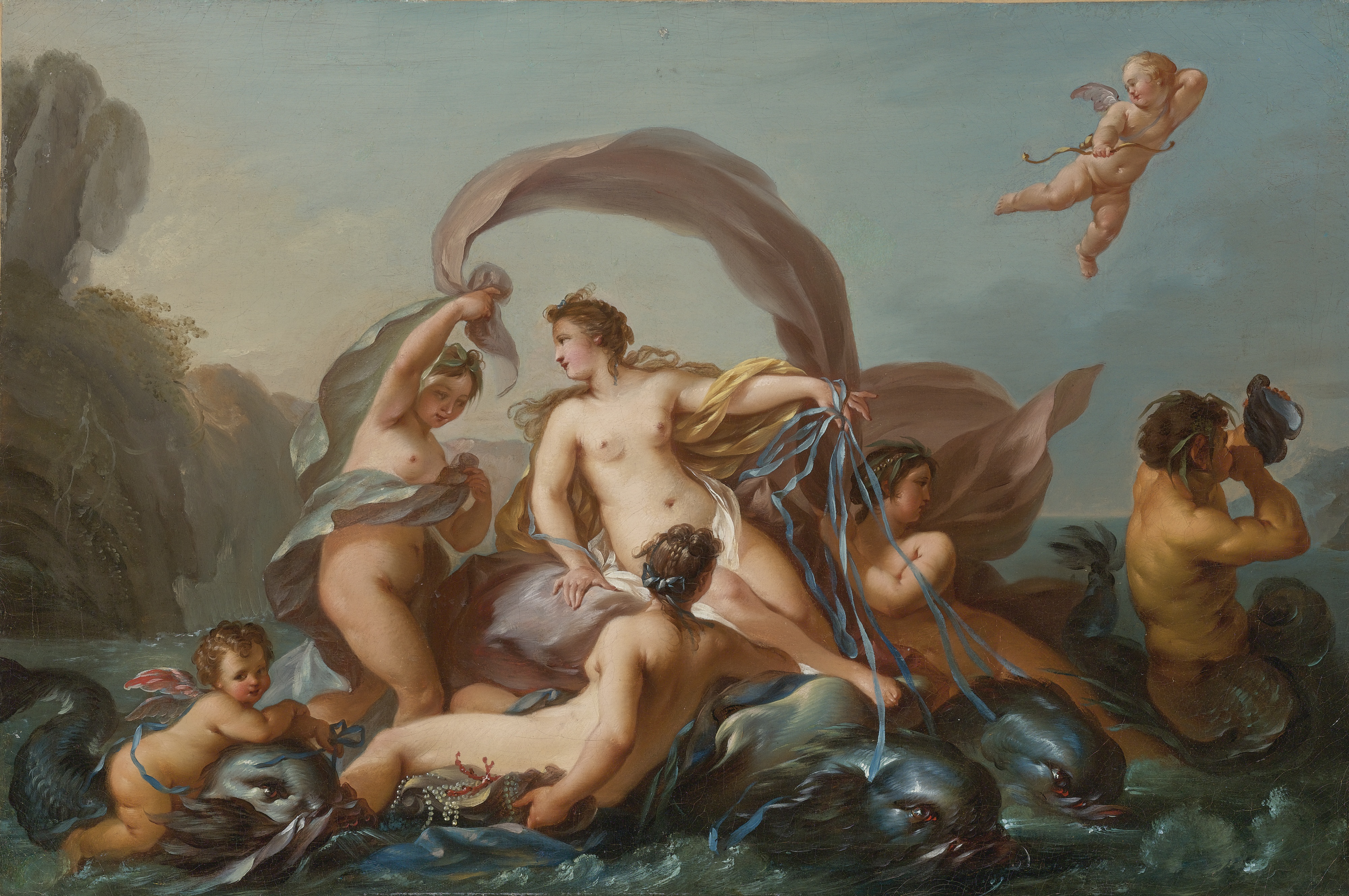
Love… Beauty… Desire…The Ancient Greek civilization had attributed a divine origin and quality to almost every manifestation of the material and spiritual spectrum that man could perceive and feel. Therefore, love (and beauty!), the most beautiful human emotion, could not be missing from the Ancient Greek Pantheon, or indeed from the twelve Olympians. The ancient tradition chose the feminine gender for the goddess of love and beauty. Perhaps because, from a linguistic perspective, the words "love" and "beauty" themselves are feminine in the Greek language. Or because the ancient Greeks believed that only a woman's nature could represent such a noble and "light" feeling, as opposed to the rough and assertive character of man's nature. In any case though, love and beauty were deified in the person of Aphrodite, who took her place among the Olympians!
Aphrodite’s birth
There are various different versions of her birth. The most famous one however, is the version recounted by the ancient poet Hesiod in his Theogony, where Aphrodite was born out of sea foam (hence her name), when the Titan Cronus, wanting to depose his father, Uranus, castrated him with a sickle and threw the latter’s genitals into the sea! Then the foam from Uranus’ genitals gave rise to Aphrodite, who emerged from the sea naked and ended up on the shores of Cyprus, which is why she is often called "Cyprian".
The Goddess Aphrodite in Greek Mythology
We have various myths in which Aphrodite participates, as with most of the Olympians. However, her most well-known appearance seems to be in the Trojan Cycle. In order to be proclaimed the most beautiful goddess in a contest between Hera, Athena, and herself, she promised Paris, prince of Troy and judge of this unusual competition, the world’s most beautiful mortal woman, Helen of Sparta! Unsurprisingly, the young prince gave the Golden Apple of Discord, which was the contest’s prize, to Aphrodite; and she, keeping her promise, made fair Helen fall in love with Paris, and encouraged him to abduct her and take her away from Menelaus, her rightful husband and king of Sparta! Thus, in a tragic irony, Aphrodite, though the goddess of love, created the pretext and cause of the Trojan War, which lasted for ten years! A love that kills...?
Depictions and Symbols
Some of the symbols associated with the goddess Aphrodite were the following: myrtle wreaths, apples, swans, etc. Aphrodite’s Girdle is of great interest, since it was imbued with the power of love and desire, and when she used it, no one could resist her. The goddess’ most recognizable depiction is the statue of ‘Venus de Milo’, which is now kept at the Louvre Museum in Paris.
Discover more
Aphrodite - Dictated by Desire- Pedia Discovery
Aphrodite - Britannica
Goddess Aphrodite - World History Encyclopedia
Aphrodite - Greek Goddess of Love, Beauty & Eternal Youth - Greek Gods & Goddesses
more moments
Recent Posts
Selected items from our collection
Share this:
- Click to share on Twitter (Opens in new window)
- Click to share on Facebook (Opens in new window)
- Click to share on LinkedIn (Opens in new window)
- Click to share on Reddit (Opens in new window)
- Click to share on Tumblr (Opens in new window)
- Click to share on Pinterest (Opens in new window)
- Click to share on Pocket (Opens in new window)
- Click to share on Telegram (Opens in new window)
- Click to share on WhatsApp (Opens in new window)

